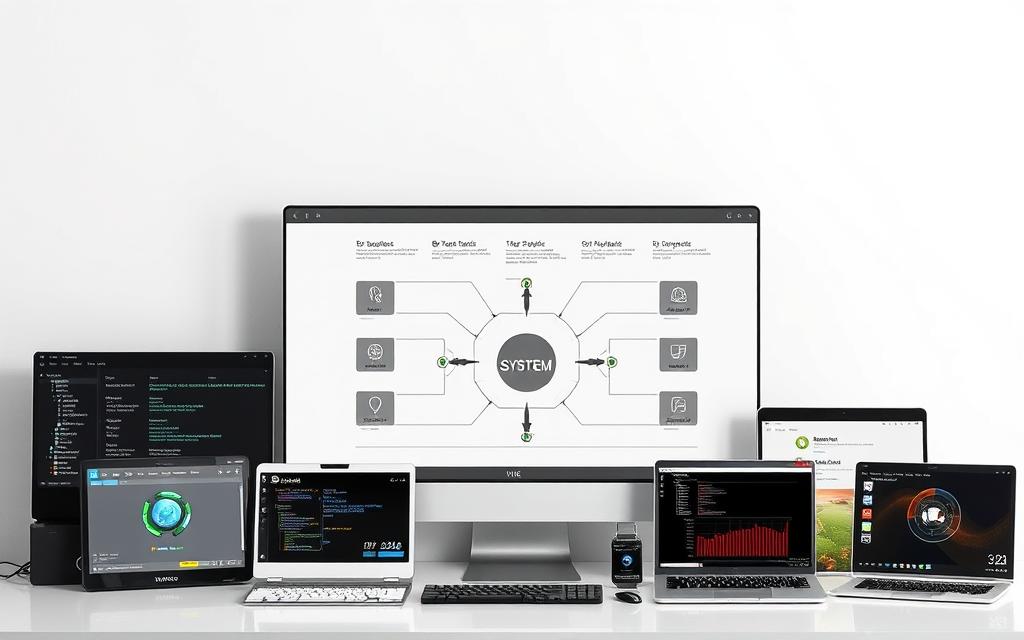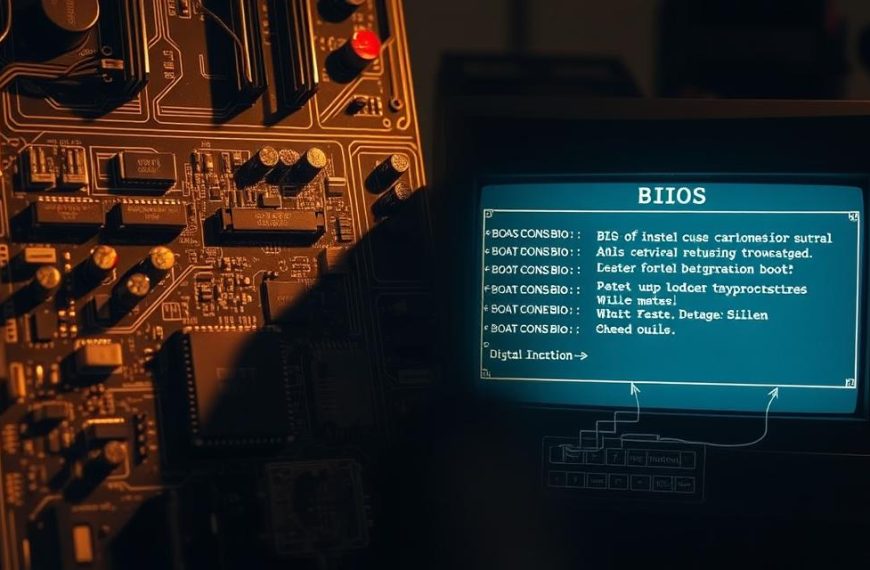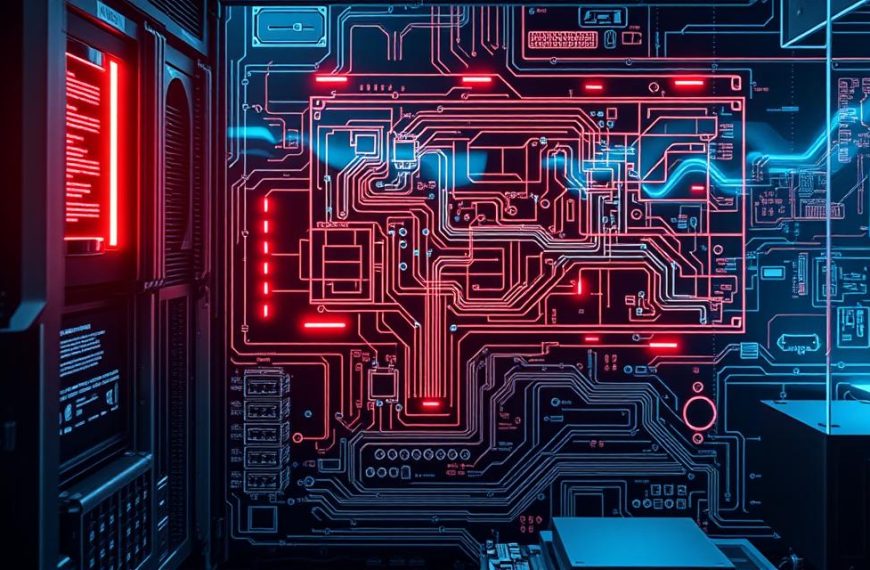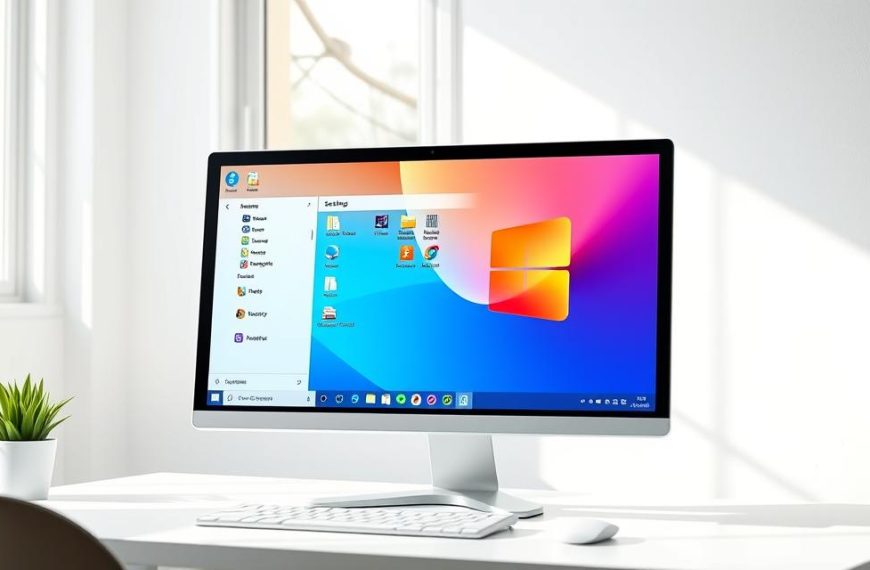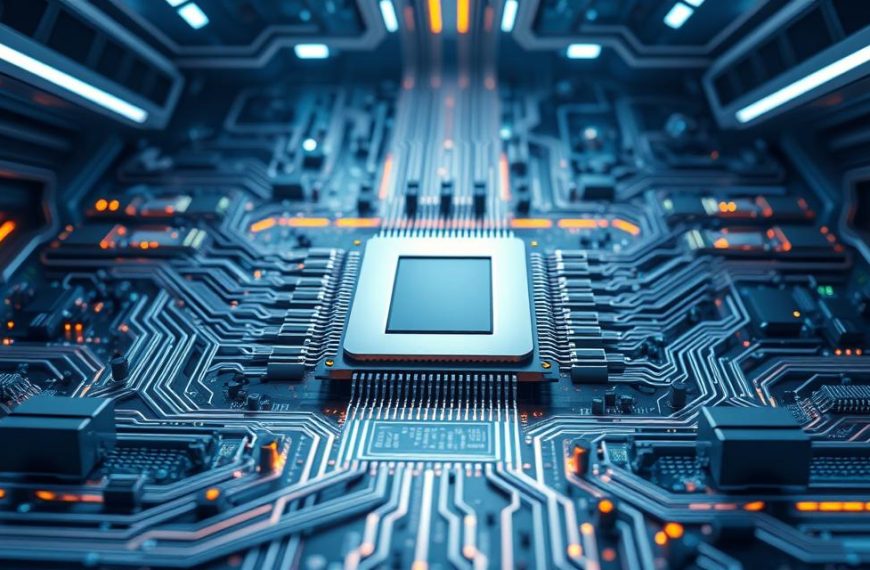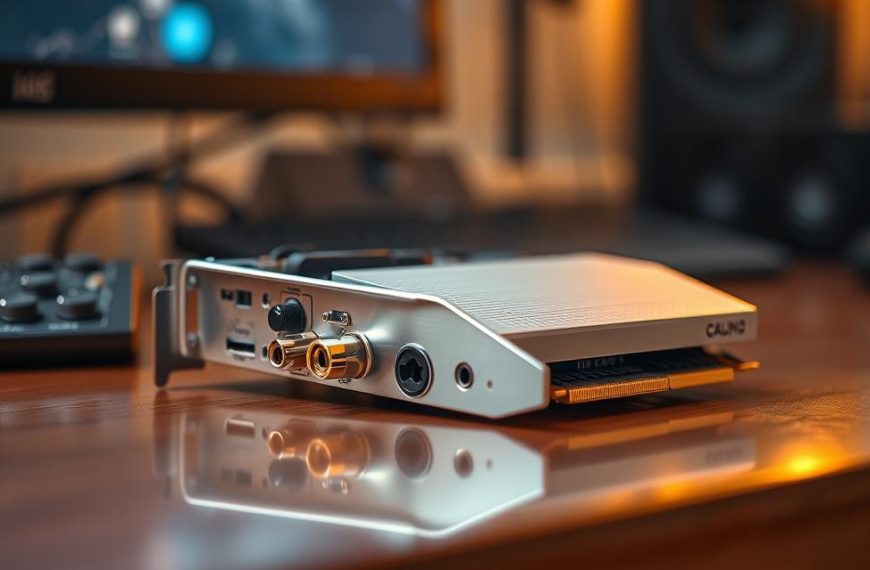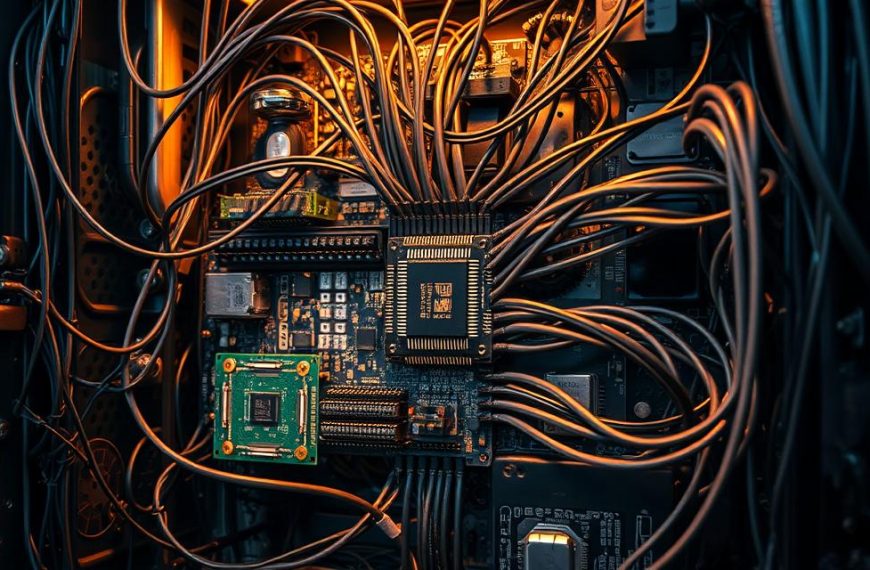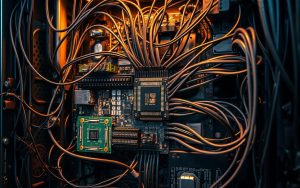Modern computing needs special software to keep our machines running well. These programmes are key to any good computer maintenance tools set.
At their heart, these tools are a clear system tools definition. They are software made to manage, keep, and improve computer systems. They do important work in the background that we don’t see but really benefit from.
Every computer expert knows how important they are for keeping things running smoothly. These tools help keep both personal computers and big networks safe and stable.
Using the right PC optimisation utilities can make your computer last longer and work better. They handle tasks like keeping disks tidy, managing memory, and protecting against threats.
Knowing about these basic tools is the first step to managing your system well. They are very important in our digital world today.
Defining Computer System Tools and Their Essential Role
Computer system tools are special software that helps manage and fix computers. They are key for keeping systems running smoothly. Both everyday users and experts can use them to keep their computers in top shape.
Computer management tools act as a bridge between users and complex system tasks. They make technical stuff easy to understand. This way, users can check their hardware and manage software without needing to be tech-savvy.
The main jobs of system tool functions include disk cleaning, memory care, security checks, and performance tracking. Each tool focuses on a different part of keeping the system healthy. Together, they make up a complete system maintenance system.
For regular users, these tools make fixing problems easier. Issues like slow computers, storage issues, or app problems are simpler to solve. This is thanks to easy-to-use interfaces and step-by-step guides.
IT experts use more advanced essential system utilities for big company needs. These tools offer detailed reports, remote control, and automatic updates for many systems at once.
The growth of system tool functions has made computers more reliable and last longer. Regular use of these tools stops problems before they start. This cuts down on system downtime and repair costs a lot.
Today’s systems use both built-in and third-party tools together. This mix covers all maintenance needs, from simple cleaning to advanced performance boosts.
Knowing how these tools work changes how we use our technology. Instead of just fixing problems, we can keep our systems running well. This means our devices work better and stay safe for longer.
Primary Categories of System Maintenance Utilities
System maintenance utilities are divided into three main types. Each type focuses on different parts of keeping your computer healthy and running well.
Disk Management and Storage Optimisation Tools
Disk management tools keep your storage space tidy and efficient. They help free up space and make sure your data is easily accessible.
Disk Cleanup Applications
Disk cleanup tools get rid of files you don’t need anymore. This includes things like temporary internet files and old installation files. Windows Disk Cleanup is a great example that helps remove unnecessary data.
Defragmentation Utilities
Defragmentation tools fix your hard drive by reorganising data. This makes your computer faster by keeping related files together. Regular use of these tools makes your system more responsive.
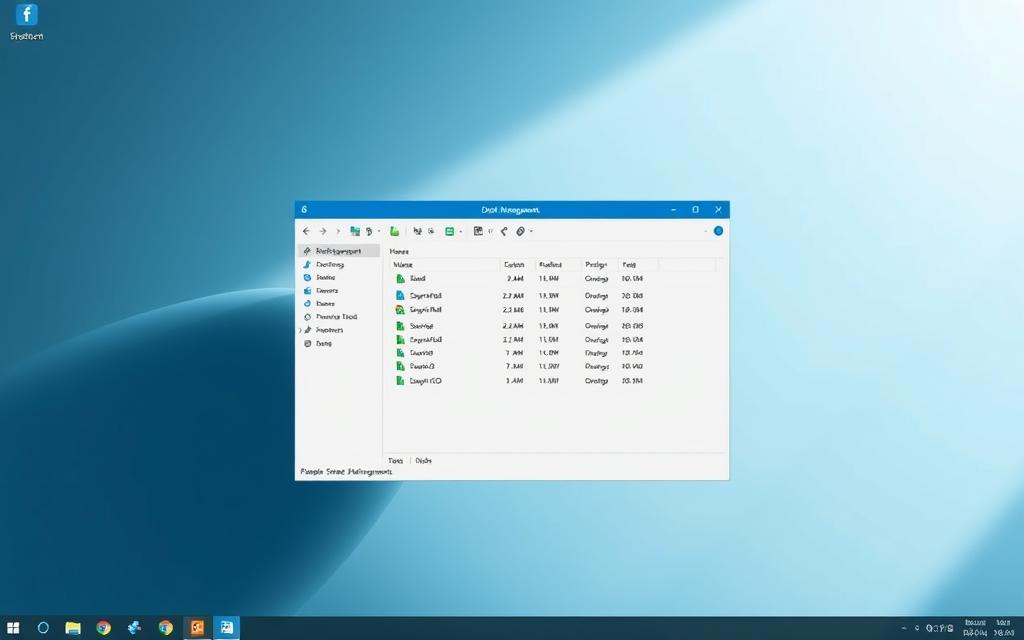
System Performance Monitoring Tools
Performance monitoring utilities give you live updates on how your system is doing. They help spot problems and make your system run better.
Resource Monitoring Software
Resource monitors track how much your CPU, memory, disk, and network are being used. They show you how much is being used now and how it has changed over time. This helps you see which apps are using the most resources.
Process Management Utilities
Process managers let you see and control what’s running on your computer. You can stop apps that aren’t working right and manage what starts up with your computer. This keeps your system stable and makes it start up faster.
Security and Protection Applications
Security applications protect your system from harm. They are a key part of keeping your system safe.
Antivirus software finds and removes malware. Firewalls watch your network traffic. Encryption tools keep your private data safe from hackers. These security applications work together to keep your system safe and your personal info private.
It’s important to keep these tools up to date to stay safe from new threats. Many security suites also offer extra features like password managers and tools to control what kids can access online.
Built-in Windows System Utilities Every User Should Know
Windows operating systems have powerful tools that boost your computer’s performance and stability. These tools are easy to find and don’t need extra downloads. Knowing how to use them can make your computer work better.
https://www.youtube.com/watch?v=MMweOpsRDEk
Disk Cleanup and Optimise Drives
The Disk Cleanup utility frees up space by removing unwanted files. It scans for temporary files and cache data that build up over time. Using it often helps avoid storage problems.
Optimise Drives, or Disk Defragmenter, makes your hard drive work better. It speeds up file access and makes your system more responsive. For solid-state drives, it helps them last longer.
Regular use of these tools keeps your storage tidy and efficient. They are key for keeping your Windows system in top shape.
Task Manager and Resource Monitor
The Task Manager shows how your system is doing in real-time. It lets you see CPU, memory, disk, and network usage. You can find out which apps use a lot of resources and manage startup programs.
The Resource Monitor gives even more detailed system monitoring. It shows real-time info on hardware and software usage. This tool helps find and fix performance problems.
Together, these tools let you manage your system’s resources. They are vital for fixing and improving your computer’s performance.
System Configuration (msconfig) Utility
The msconfig utility lets you control what runs when Windows starts. You can stop programs from starting automatically, which makes your computer start faster.
msconfig also lets you change system settings and boot options. It’s great for clean boots to troubleshoot problems. It’s a safe way to find and fix software conflicts and system issues.
This tool gives you detailed control over your system. It’s a key part of Windows’ built-in utilities for advanced maintenance.
Learning to use these built-in utilities helps you keep your system running smoothly. Regular use prevents many common problems and keeps your computer performing well.
Popular Third-Party System Maintenance Suites
Windows has its own tools, but many people use third-party software for better maintenance. These suites offer more features, easy-to-use interfaces, and automated tasks. They help make computers run smoothly.
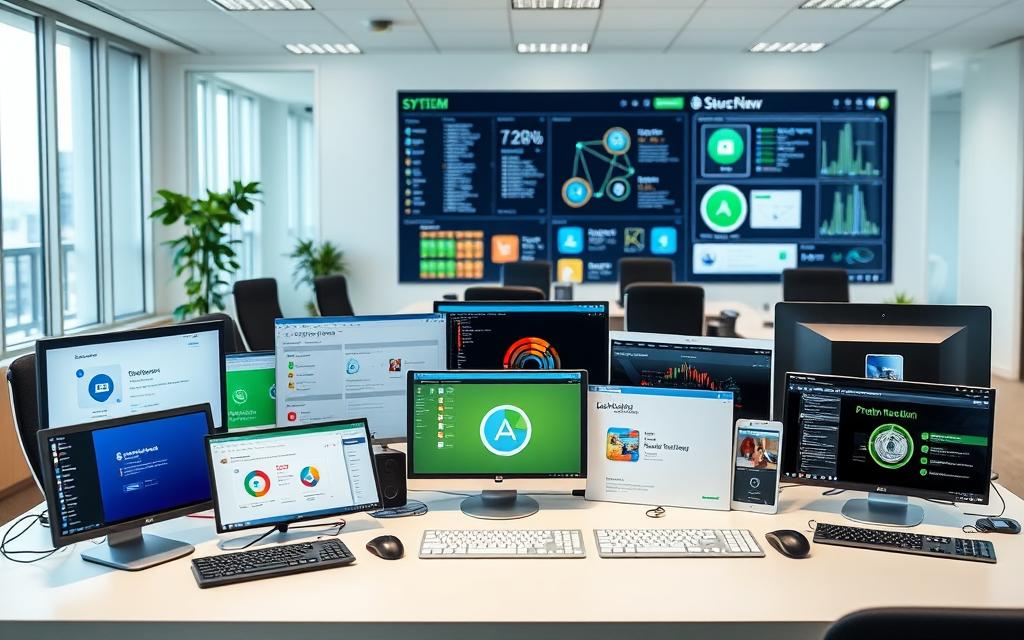
CCleaner: Comprehensive System Optimisation
CCleaner is well-known for keeping systems clean. It removes temporary files, browser caches, and fixes registry problems.
It also has privacy protection features to erase browsing history and cookies. CCleaner is easy to use, even for those who aren’t tech-savvy.
Using CCleaner regularly can free up disk space and keep your system fast. Experts often suggest it for its reliable performance and regular updates.
Advanced SystemCare: All-in-One Maintenance Solution
Advanced SystemCare is a complete system maintenance tool. It combines performance boosts, security, and cleaning in one package.
The software monitors your system in real-time and cleans deeply. It also has automated maintenance options for easy optimisation.
It includes security tools like malware detection and removal. This makes it great for those who want full system protection.
CCleaner and Advanced SystemCare show how third-party tools can go beyond Windows utilities. They offer special functions to solve common computer problems.
Significant Benefits of Regular System Maintenance
Regular system maintenance brings big advantages. It makes devices work better and safer. This is true for both personal and work use.
Enhanced System Performance and Responsiveness
Keeping your computer in check makes it run faster and smoother. Tools get rid of unwanted files and make storage better. This makes your computer work better.
Hard drives get defragmented for quicker access. Cleaning out temporary files and cache gets rid of slowdowns. These steps make your computer quicker for daily tasks.
Tools manage memory so apps run smoothly together. This stops your computer from slowing down when you do many things at once. It keeps your computer running well for a long time.
Improved Security and System Stability
Regular maintenance is your first line of defence against online threats. It finds and fixes problems before they cause harm. This is a big step up in security.
Keeping your system updated makes it more stable. Tools find and fix issues that could crash your computer. This means fewer problems and a more reliable computer.
Updates are applied automatically, keeping your system safe. This stops security holes and keeps you protected from new dangers. Together, these steps make your computer safe and stable.
Best Practices for Effective System Tool Usage
Keeping your system in top shape is more than just having the right tools. It’s about developing good habits and planning ahead. By following system maintenance best practices, your computer will run smoothly and safely. Both home users and IT experts can benefit from setting up clear maintenance plans.
Establishing Regular Maintenance Schedules
Being consistent is key to good computer care. Instead of doing things randomly, set up regular schedules that fit your needs. Windows and other operating systems have tools to help with this, like system configuration tools for automated tasks.
Here’s a simple maintenance plan:
- Weekly tasks: Disk cleanup and temporary file removal
- Monthly tasks: Disk defragmentation and software updates
- Quarterly tasks: Full system scans and performance reviews
For businesses, scheduled maintenance is a big help. IT teams can do these tasks when it’s quiet, without slowing things down. Tools for remote management let admins work on many systems at once.
Implementing Backup Strategies Before Maintenance
Before you start any maintenance, make sure you have a solid backup strategy. Even simple tasks can sometimes cause data loss or system problems. Always protect your data before using disk utilities, registry cleaners, or big updates.
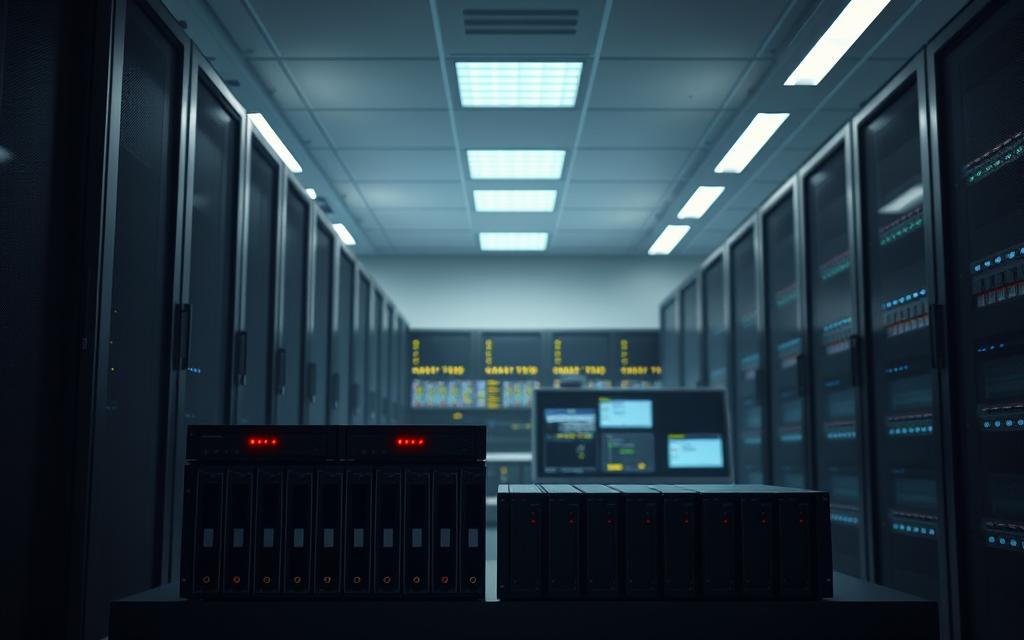
- Creating system restore points before big changes
- Keeping off-site or cloud backups for important data
- Checking backup integrity before maintenance
For pros, the 3-2-1 rule is a good guide: three data copies, on two different media, with one off-site. This keeps your business running smoothly, even if maintenance goes wrong. Remember, it’s always better to prevent problems than to try to fix them after they happen.
What is System Tools in Computer: A Detailed Look
System tools are special software parts that help keep computers running smoothly. They are key to managing a computer well, giving users control over how it works.
System tools have grown with computers. Old computers needed people to do simple tasks. Now, computers have advanced tools that do these tasks automatically and offer more control.
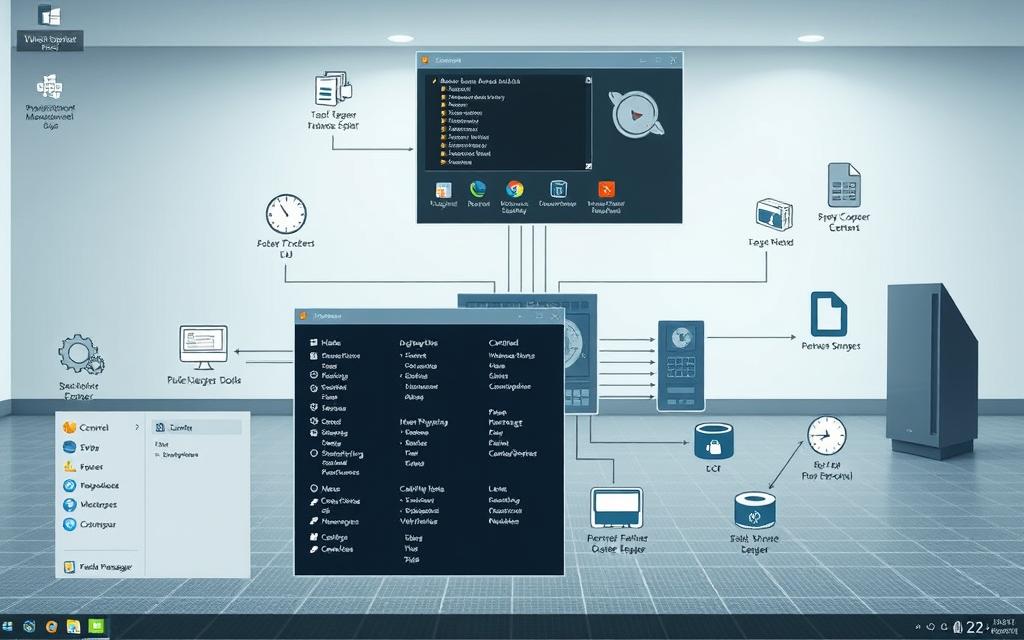
Windows is a great example of this. It comes with many tools for managing disks, checking performance, and keeping things safe. These tools work well with the computer’s setup.
These tools cover important areas. Disk management tools help with storage and keeping files in order. Performance monitors watch how resources are used and find problems. Security tools protect against dangers.
System tools make a complete system for keeping computers in top shape. They work together to keep things running well, safe, and stable. Using them regularly helps avoid problems and makes computers last longer.
Explaining system tools shows how vital they are in today’s computing world. They make complex tasks easy for users. This means people can take care of their computers without needing to be tech experts.
Knowing about system tools helps users keep their computers healthy. It’s the first step in good computer care. This knowledge is essential for keeping computers running smoothly.
Conclusion
System tools are key to keeping your computer in top shape. This article has covered the basics, from Windows tools to powerful third-party options like CCleaner and Advanced SystemCare. Using these tools regularly boosts your computer’s performance, security, and stability.
Understanding the importance of system tools is essential for daily use. Regular maintenance helps avoid problems and makes your device last longer. This shows how important it is to take care of your system ahead of time.
Follow the tips shared to ensure your system runs well. Focus on managing your disk, monitoring performance, and using security apps. Your computer will thank you with better reliability and speed.
